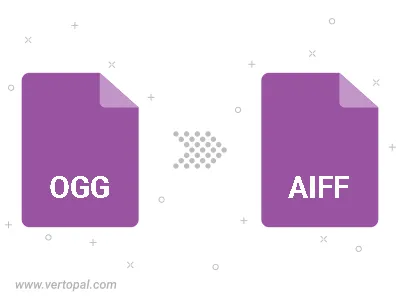Convert OGG to AIFF
Convert OGG audios to AIFF format, edit and optimize audios online and free.

The OGG file extension, specifically associated with Ogg Vorbis Audio, represents a free, open-source container format developed by the Xiph.Org Foundation. Its primary use is to store compressed audio files, ensuring efficient streaming and manipulation. Introduced in the late 1990s, Ogg Vorbis was designed to offer an alternative to proprietary audio formats like MP3, delivering high-quality sound without patent restrictions. Its widespread adoption across various platforms and devices highlights its significance in the digital audio landscape.
AIFF stands for Audio Interchange File Format, a standard format for storing high-quality audio data used in professional audio and video applications. Introduced by Apple in 1988, AIFF files are uncompressed and lossless, ensuring pristine audio reproduction. Primarily utilized in audio software, digital workstations, and sound engineering, AIFF files maintain original sound quality, making them ideal for editing and mastering. Despite their large file size, their superior audio fidelity is highly valued in professional settings.
Select a OGG file from your computer to initiate the upload.
Apply OGG to AIFF tools on the preview page and finalize with Convert.
Download your AIFF audio once the conversion process is complete.

Trim & cut OGG and convert it to AIFF.
Convert OGG to AIFF and set the output channels to Mono (1.0) or Stereo (2.0).
Once installed, Vertopal CLI supports conversion of OGG audio into AIFF audio.